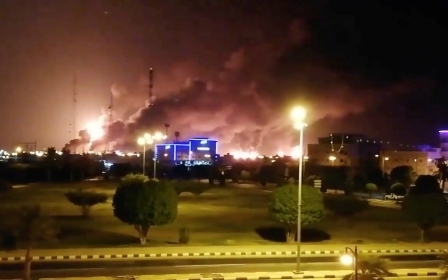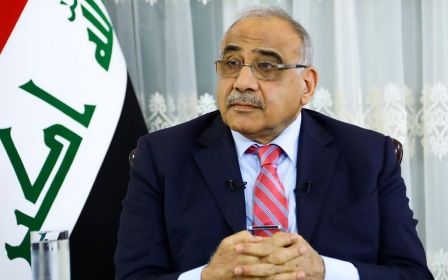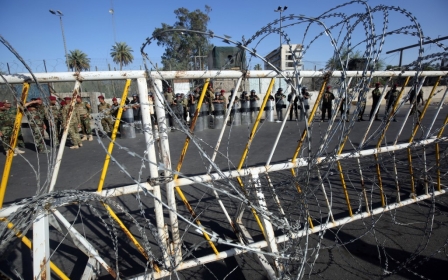Controversy grips Iraq after removal of top army commander

The sidelining of a prominent Iraqi general celebrated for helping oust the Islamic State (IS) group from Mosul has generated controversy in a country caught in a tug of war between Tehran and Washington.
The Iraqi premiership on Friday announced it was decommissioning Staff Lieutenant General Abdulwahab al-Saadi, who had served as the deputy head of the elite Counter-Terrorism Service, without giving a reason, AFP reported.
As a top commander in the CTS, which was created and intensively trained by the US, Saadi helped recapture Mosul from IS in 2017. He is seen as the most popular leader who fought against IS in Iraq, the Asharq al-Awsat international Arabic newspaper reported on Saturday, adding that his name had surfaced as a prime minister candidate last year.
Saadi said he considered the shift to a posting at the defence ministry as an "insult" and a "punishment".
New MEE newsletter: Jerusalem Dispatch
Sign up to get the latest insights and analysis on Israel-Palestine, alongside Turkey Unpacked and other MEE newsletters
The decision has sparked allegations of a purge of officials seen as unfavourable to Iraq's Hashed al-Shaabi paramilitary force, which includes factions close to Tehran.
An Iraqi government official who requested anonymity said pro-Iran factions within the Hashed had "personally" lobbied for Saadi's removal.
"These groups were operating outside the state and the only barrier was the CTS," the official told AFP.
"The idea is to sideline him to bring somebody close to Iran and no longer have the CTS as a check."
Political commentator Ghaleb al-Shabandar said the move was "the beginning of the Iraqi army's dismantling and handover to the Hashed and other armed groups".
Iraqis across the country - including in battered Mosul, where a statue of Saadi was erected but never unveiled due to divisions in the city - reacted with shock to the move.
The hashtag "We are all Abdulwahab al-Saadi" began trending on Twitter, with users sharing photographs of the general aiding civilians in Mosul and other cities.
"He won the people's friendship but the (politicians') hatred," one supporter wrote, while another lamented there was "no more space for patriots in this country".
Saadi led CTS troops to recapture a string of cities from IS - Baiji and Tikrit in 2015, followed by Fallujah and Mosul. "While the fight against IS goes on, this decision reinforces the enemy's morale and weakens Iraqis' faith in their army," said militant specialist Hisham al-Hashemi.
Lawmaker Khaled al-Obeidi, Iraq's former defence minister, said parliament would investigate the reasons behind the premier's decision.
Middle East Eye delivers independent and unrivalled coverage and analysis of the Middle East, North Africa and beyond. To learn more about republishing this content and the associated fees, please fill out this form. More about MEE can be found here.




